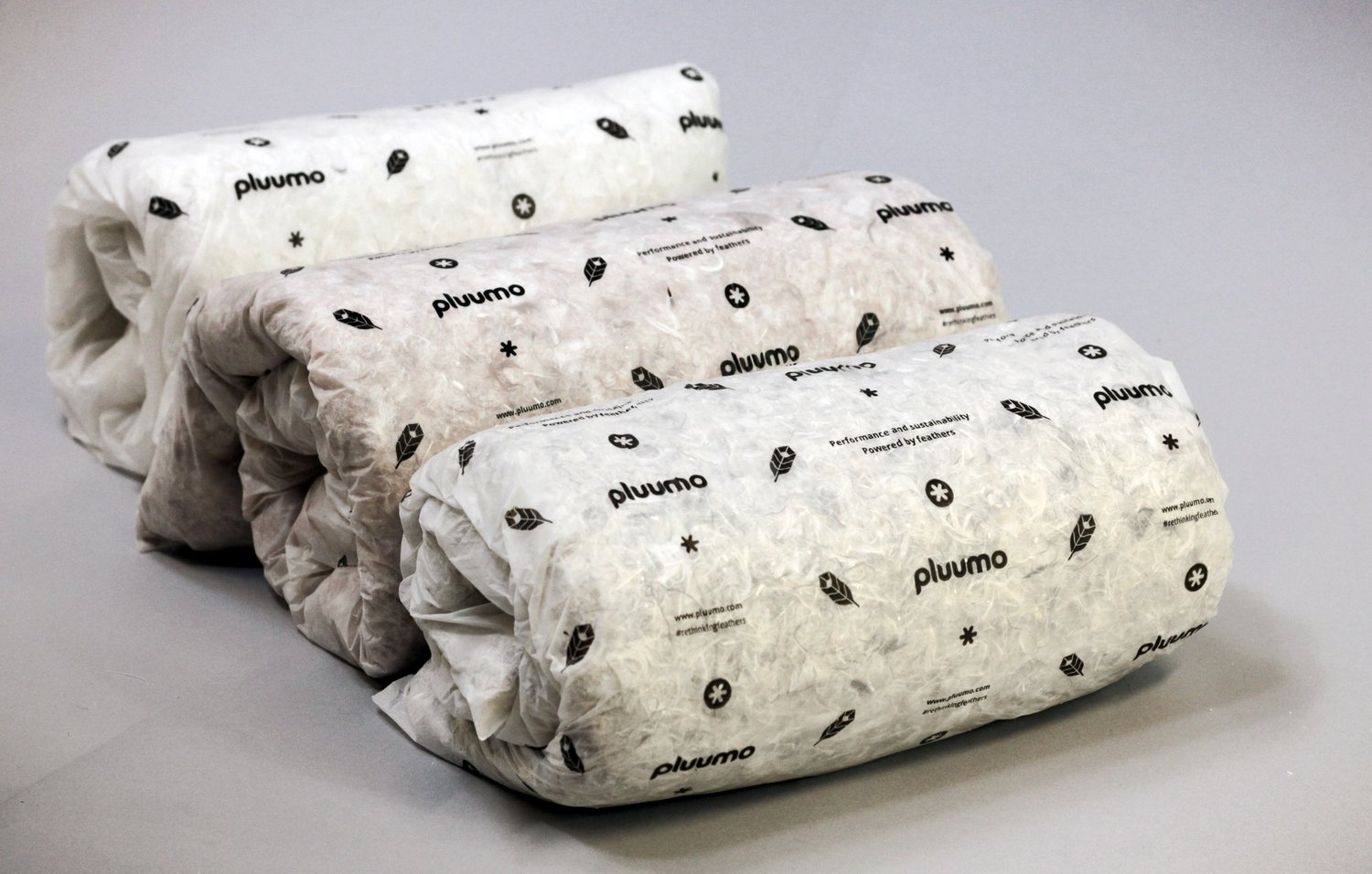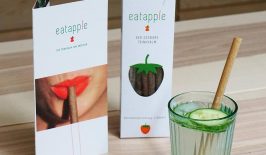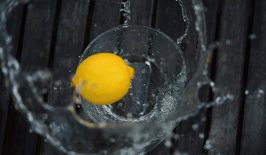What weighs more: a ton of feathers, or a ton of feathers turned into biodegradable insulation materials?
Millions of tonnes of waste feathers are produced each year across the world, byproducts from the poultry and the down industry. The majority of these feathers are either incinerated, thrown away, or in some places including the US, turned into ‘feather meal’, a low-grade animal feed additive or a nitrogen-based fertilizer. The E.U. wastes 3.1 million tons a year.
But feathers might be put to work replacing non-sustainable and non-recyclable materials. Like hair and fingernails, feathers are made up mainly of the tough, stable protein keratin. Aeropowder, a London-based startup, is rapidly investigating creating insulating materials from waste feathers to create high-performance and environmentally friendly product replacements.
Feathers, as we know from our blankets and jackets, offer high levels of insulation. Aeropowder has produced a first product for the market, called ‘Pluumo’, a food-grade packaging material that offers a new form of high-quality, biodegradable insulation.
Pluumo is made up of 95 per cent waste feathers from feathers not suitable for down, along with a 5 per cent mix of a bio-binder, wrapped in a compostable sheet. Its main competitor is polystyrene, used ubiquitously in food, grocery, and pharmaceutical deliveries, which is both non-recyclable and made from non-sustainable materials.
“This textile could have different applications, depending on density and height. We made thick batts, thin and rigid boards or a soft roll – which we use for Pluumo,” said Aeropowder’s Chief Technical Officer and co-founder Elena Dieckmann to Packaging Europe.
“We initially started off wanting to make building insulation- but with Grenfell Tower the industry is very suspicious about new materials and testing. Therefore we made a massive pivot, utilising the excellent insulation properties of feathers as a thermal packaging material. Tests are still on-going but so far we outperform most other insulation materials.”
Aeropowder has already sold Pluumo to early customers, including recipe kit suppliers and organic butchers, and the company intends to scale its facilities through raising investment.
We’ve covered other insulation innovations, from seaweed balls to a whole home made entirely of plastic bottles, but feathers would seem to be a natural solution.






